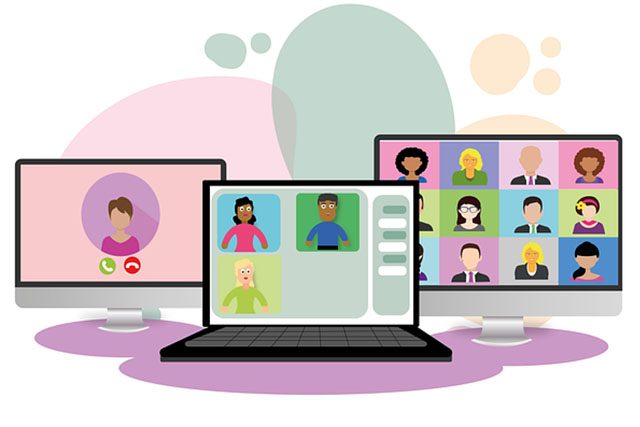Virtual meetings and teleconferences took the spotlight as Filipinos contribute to the #MostUsedPhrasesOf2020, a hashtag that gained traction on local Twitter.
The phrase, which landed on the top trending list of the microblogging platform’s Philippine data on Wednesday morning, highlighted how people heavily relied on technology as remote working became the norm for this year.

Television host Bianca Gonzalez shared a few phrases which she believed became the most uttered ones as the Filipino workforce embraced the concept of work-from-home and online meetings in light of the coronavirus pandemic.
“Ay, naka-mute ka” and “Send me the link please” were some of her contributions to the “#MostUsedPhrasesOf2020” trend, in reference to teleconferencing. Meetings shifted from office rooms to platforms such as Zoom and Microsoft Teams, among others.
"Ay, naka-mute ka."#MostUsedPhrasesOf2020
— Bianca Gonzalez (@iamsuperbianca) December 29, 2020
"Send me the link please."#MostUsedPhrasesOf2020
— Bianca Gonzalez (@iamsuperbianca) December 29, 2020
In virtual meetings, one can mute one’s microphone or speaker or turn off their camera.
Muting one’s microphone has become the norm in huge or formal meetings to give the host the uninterrupted chance to speak without background noises coming from the attendees’ locations.
When an attendee needs to speak, he/she needs to unmute himself first so that everyone can hear him. There are times that some people tend to forget this, hence prompting the phrase “Ay, naka-mute ka” from others.
Meanwhile, “send me the link please” could be a reference to the meeting links that are created and forwarded to attendees through e-mail to ensure that only people expected to attend would show up to avoid hacking and “Zoombombing” issues.
READ: Explainer: Zoom bombs make choosing video apps harder for lockdown chats
Other Twitter users also contributed to the “#MostUsedPhrasesOf2020” as virtual meetings and teleconferencing took the spotlight as a result of remote working.
“Can you see my screen?” #MostUsedPhrasesOf2020 https://t.co/BVhFbyviaS
— #OustTheTurtle (@branthe_) December 29, 2020
"Can you hear me?" #MostUsedPhrasesOf2020
— Michael Guinita (@michael_eyes) December 29, 2020
"Let me share my screen."#MostUsedPhrasesOf2020
— Michael Guinita (@michael_eyes) December 29, 2020
Some aspects of Filipinos’ everyday lives have gone digital to avoid physical contact as part of the safety protocols against the coronavirus disease, which has a high transmission rate.
These include shopping (which turned to online shopping), going to banks (which turned to online banking and the surge of e-wallets) and personally meeting up with people to talk and exchange ideas (which turned to virtual meetings and teleconferencing).
As remote working became the norm, teleconferencing platforms took the front seat in exchange for meetings at offices and conference rooms before.
This set-up ensured that no physical contact would take place, which increases the risk of potentially catching the virus.









